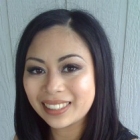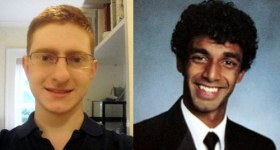photo: Obama For America Nevada (OFA NV)
Asian Americans and Pacific
Islanders (AAPIs) are the fastest growing racial group in the United States,
making AAPI voters a force to be reckoned with as a key constituency group for
the 2012 presidential election. The Obama For America (OFA) campaign is
attempting
to
capture the attention of ethnic voting blocs in various states.
Unfortunately
only
48
percent
of AAPIs turned out to vote in 2008, making them the lowest registered group,
compared to 62 percent of all Americans. Only half of eligible AAPIs are
registered to vote, making AAPIs the lowest racial or ethnic group
recorded. OFA can still remain optimistic though, since 81 percent of
first-time AAPI voters voted for President Obama.
While
mainstream news outlets focused on AAPI Silicon
Valley entrepreneurs as
flashy campaign donors in the already blue state of California, what's really
at stake for many is outside of the San Francisco Bay Area. AAPI populations
can make a big difference in
battleground
states throughout the country, especially Nevada.
Holding
six
electoral
votes, Nevada is a key swing state to win the presidential election. Nevada
is home to the nation’s fastest growing AAPI population. AAPI
and Latino voters were the margin of swing victory in U.S. Senator Harry Reid's
run for re-election in Nevada during the 2010 mid-term elections.
Filipino
Americans are the second largest ethnic group in Nevada alone, and make up 4
percent
of
the state’s population
at 98,000 -- 86,000 of whom
reside
in
Clark County. Tagalog will be the third language, aside from English and
Spanish, to be used in election materials in Clark County. OFA has a clear
investment in AAPI communities, with a total of seven field offices in Las
Vegas alone, which is located in Clark County.
Some
speculate that because of poor voter turnout during the previous
mid-term
elections, as well as a likely
loss
of white swing independent voters supporting Obama, OFA will
attempt
to recapture base voters, particularly communities of color.
Toward the end of last year, OFA launched Operation
Vote,
a voter engagement and outreach program intended to expand support from ethnic
groups. Operation Vote focuses on
constituency
groups for Obama, ranging from African Americans, women, to veterans, environmentalists,
and
most recently -- Obama Pride -- or Lesbian, Gay, Bisexual and Transgender (LGBT)
Americans for Obama.
Last
month, OFA launched Asian
Americans and Pacific Islanders (AAPIs) for Obama.
OFA is
clearly
making
an
effort to reach the largest of AAPI ethnic groups, with some campaign
materials
translated in languages such as Chinese, Tagalog,
and
Vietnamese.
AAPIs
support
Obama by a nearly five to one
margin,
ten
to one among Indian Americans, and three to one
among
Korean Americans.
While
various polls
have come out recently focusing on
the
AAPI community's preferences regarding political parties, there is still no substitute
for having voters identify with staff and volunteers who share the same face,
experience,
and
language, making voters more likely to vote for the candidate whose campaign actively
reaches out to them.
Filipino
American labor organizer and attorney,
Mario
Salazar,
started
off as a Deputy Field Organizer for OFA in Pennsylvania in 2008. Mario was
recently
promoted
to
Director of Nevada's
Operation
Vote, a position vital to help win battleground states for the 2012
presidential election.
Mario's
presence in the campaign, like that of
like
other AAPI staff at OFA pictured in the video above, shows that OFA values
inclusion and diversity on staff across various departments. But it's less
about marketing to a constituency group, and really about showing how AAPIs are
a part of a larger family.
Maya
Soetoro-Ng, Obama's Asian American sister, and her husband Konrad Ng, are Obama
campaign veterans,
and
currently are campaigning on their brother's behalf, something Obama wasn't shy
about addressing at the
Asian
Pacific American Institute for Congressional Studies (APAICS) annual gala
address.
Mai
Uy, an OFA Nevada volunteer,
noted,
“His sister is half Asian, so when he talks about the AAPI community, he’s
talking about us as family.”
But
this won't be an easy fight--2012 won't be without its challenges for online
and field organizers for the campaign.
There's
still a large segment of the AAPI community that is not registered to vote
(taking into account that there is still a large number of immigrant
voters who
have not yet naturalized and can become eligible to vote in this election).
Research shows that naturalized immigrants,
when
registered, vote at higher rates than the native-born.
Another challenge OFA will take on
is harnessing online activity (use of apps and social media) and translating
it
into field work--
meaning
registering people to vote, getting AAPI communities to mail their absentee
ballots,
and
increasing
turnout
to the polls in November.
OFA
has the most sophisticated data
and
metrics-driven programs that even the D.C.
Beltway has ever seen,
and
it will still take some work to capture the vast AAPI community online.
Fortunately, according to the Pew
Research Center,
English-speaking AAPIs'
civic
engagement is among the highest of all racial groups on mobile and the Internet. But how this looks when disaggregated by ethnic groups and in native Asian languages
can get super technical.
The
energy from the 2008 campaign may not be the same. The average Joe
or
Jane may not be creating their own ”Barack the Vote”
shirts
to wear at
the
next hot party,
or
playing Obamagirl YouTube videos with their friends just yet,
but a strong passion for volunteerism and getting involved in community through
the campaign remains.
Mai
Uy, a single mother and nurse,
started
volunteering for OFA, and after one meeting has dedicated more and more time to
organizing her community, while also coordinating phonebanks in Las Vegas.
“For
me, I have seen President Obama take a real stand on issues that mean the most
to me. ...
Because
of the Affordable Care Act, my daughter can stay on my healthcare insurance
plan and my friend’s children can stay on theirs-- a
point I bring up with my friends all the time. As of now, I haven’t met that
many AAPIs in my community who are engaged in the election, but I’m hoping to
change that. That’s why I organize;
this
is my way of helping hundreds and thousands have their voices heard. I believe
President Obama has stood for our communities;
it’s
time we stand united with him.”
Volunteers
like Uy hope to contribute to making history a second time in November to land
Obama
a second presidential
term.
We
shall see what color Nevada will be on November 6.
Note:
The Romney campaign was contacted to interview for this article. We await a
response and hope to feature them in a future article.
Full disclosure:
Erin Pangilinan is a Filipina For Obama. She was involved in Filipinos For
Obama in 2008.
***
Bio:
Erin is a prolific writer and has worked as a Philippine News
Correspondent for over six
years
and as a Change.org Immigrant Rights Cause blogger.
She is excited to join the Hyphen magazine staff, contributing to the Politics
section, of which this is her first contribution. Read more work from Erin at erinjerri.com










Comments